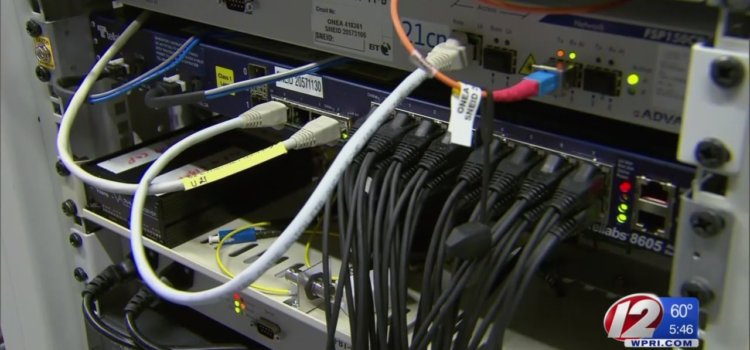By Susan Campbell
Langevin is a member of the House Armed Services and Homeland Security Committees, and has long-touted cybersecurity as one of his top priorities.
“One of the worst-case scenarios that I have always been worried about is that computers worldwide would be shut down, businesses and hospitals would be locked out of their computers, or even worse damage could be expected,” Langevin told reporters Monday. “We have to step up our game, be as aggressive as possible in protecting our networks and doing everything we can to keep this from happening.”
Brenna McCabe, a spokesperson for the Rhode Island Department of Administration, told Eyewitness News the state is not aware of any state agencies that have been impacted by the ransomware attack.
In a statement, McCabe said, “We are following the comprehensive guidance provided by the U.S. Department of Homeland Security and are sharing information with staff to make sure we are taking proper precautions. Our chief cybersecurity and IT officials will continue to closely monitor activity and take the appropriate measures to protect government resources.”
According to the Rhode Island Department of Health, local hospitals and health care provider networks have not been impacted by the cyber attack. Joseph Wendelken, a spokesperson for the agency, said the Department of Health collaborates with hospital networks to prepare for cybersecurity issues.
“We work very closely with hospitals throughout the state to make sure they are prepared should there be an incident,” Wendelken explained. “For example, ensuring that patients were still able to get their medication if there wasn’t access to electronic medical records.”
Below is a statement released Monday night by Congressman Langevin.
“The so-called ‘WannaCry’ ransomware has caused significant disruption around the globe due to its unusually high degree of infectivity. Thankfully, that trait can be countered with a Microsoft Windows patch that has been available since March. I implore all computer users to update their systems immediately, and, where possible, enable automatic software updates.
“I have often said that cybersecurity is the national security challenge of the 21st Century, and WannaCry demonstrates the massive disruption malicious software can cause. Business leaders, particularly those in critical infrastructure industries, must make cybersecurity a risk management priority if we are to stave off the inevitable next wave of attacks. The government, too, needs to step up efforts to improve its cybersecurity posture, and the President must act immediately to fill critical vacancies in cybersecurity posts.
“While the WannaCry incident is ongoing, I have thus far been impressed by the information sharing between security researchers, governments, and affected organizations. WannaCry is an international security challenge, and it demonstrates the vulnerabilities all connected countries share on the Internet. Law enforcement agencies around the world must work together swiftly to bring the perpetrators to justice.”




